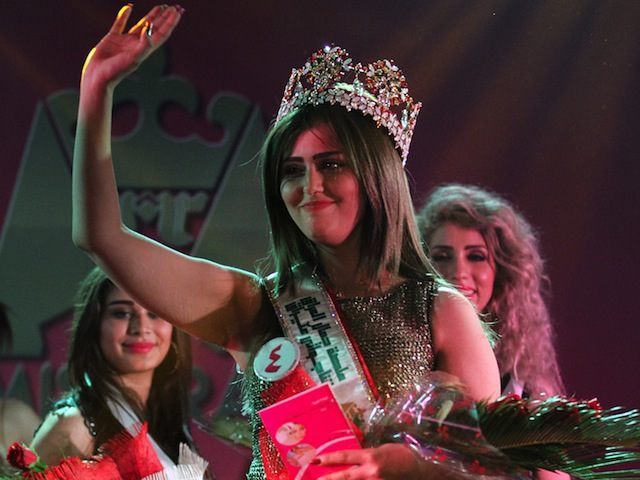Choosing out of the eight contestants, the judges decided on a tall, green-eyed, twenty-year-old from the city of Kirkuk—a city long contested between the Arab Iraqis, who claim it to be an integral part of the homeland, and the Kurds, who no longer see themselves as Iraqi but have vowed to take Kirkuk with them when they split off for good.
Kirkuk has oil—tons of it—and it now became clear that the city is also rich in beauty. Donning a sleeveless tight dress and a crown sitting atop a head of highlighted hair, it was inspiring to see the beaming smile of the new Miss Iraq—Shaymaa Abdelrahman—reminding us that the best way to get back at the beasts (ISIS) in Mosul—a city not far away from Kirkuk—is to live as fearlessly as possible.
Since politics is all about acoustics no matter where you are, Iraqi PM Abadi needs to be seen fighting a domestic fight with domestic resources—particularly as his rivals pick at any hint of a loss of sovereignty. Given what Iraq has been through, Iraqi politicians can’t afford to have their own killed by Americans anymore no matter what the circumstances—there has been far too much of that already. Recent history remains a thorny topic whether you are a politician or not. But when you have one partner carrying out attacks from the air while the other is carrying out attacks on the ground, coordination will become much more complicated before it gets simpler.
The US, for its part, needs to remember its role—that of offering and leading the aerial attacks that support ground operations—and not the other way around. Clearly defined roles are essential, otherwise there will be more uncoordinated accidents and mishaps that will hinder cooperation at best, fostering resentment and anger at worst.
Hopefully in the coming weeks, real dialogue and compromise will resolve these issues and the two countries may work better together to rid everyone of ISIS. Until then, with her small victory today, Shamyaa Abdelrahman sends a bright, hopeful, and defiant message against everything ISIS stands for—by being a woman, a Muslim, and best of all —unafraid. You go girl!
Nadia Al Sultani, an international development professional and former USAID advisor to Iraq, is the author of Baghdad Stories: An Iraqi-American Memoir. Al Sultani, an Iraqi-American, holds an MA in International Economics and spent several years working in international banking on Wall Street before beginning her career in public service.

COMMENTS
Please let us know if you're having issues with commenting.